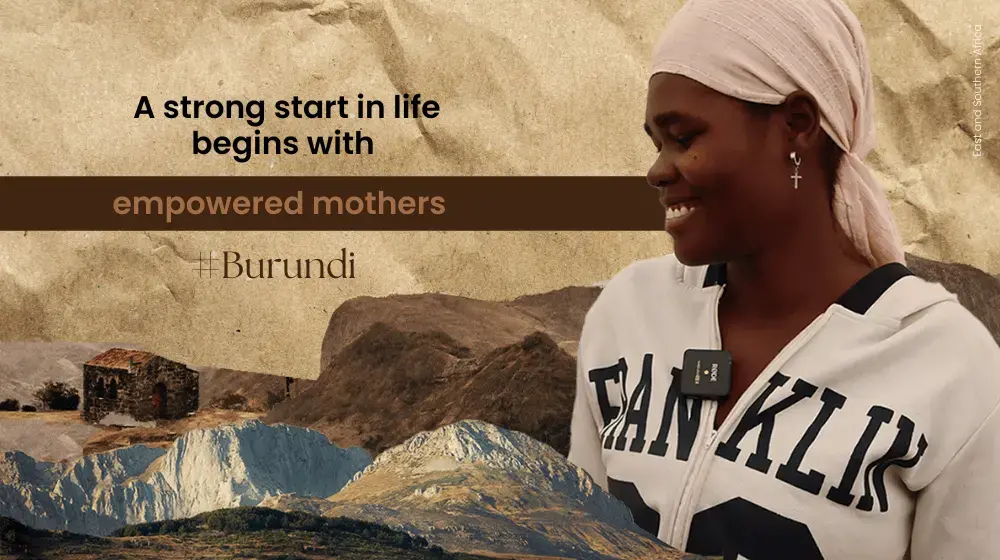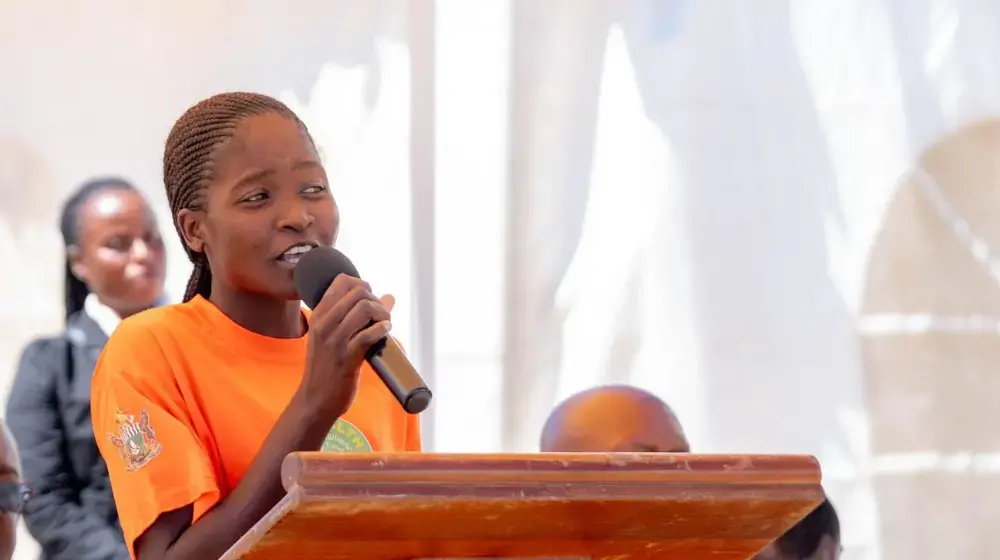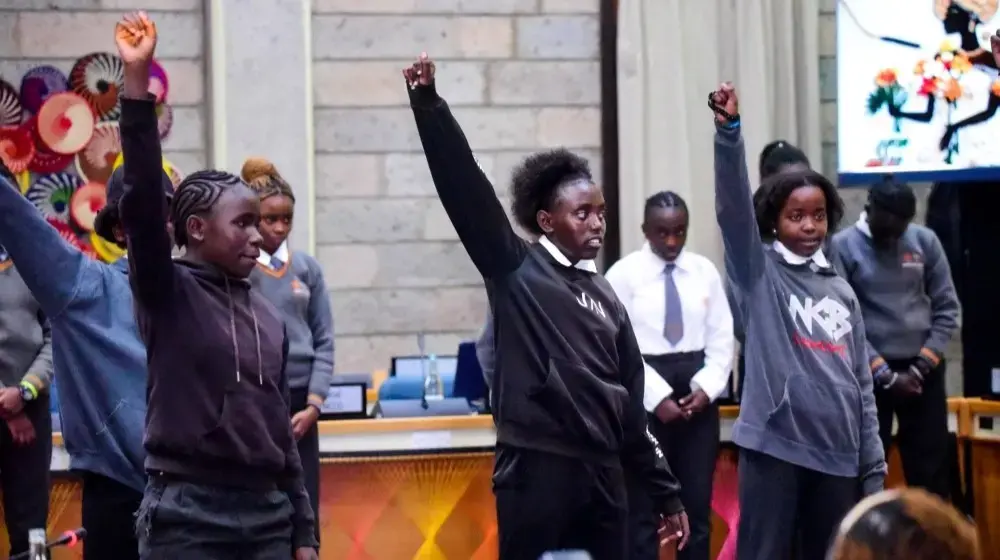MANANJARY, Vatovavy region, Madagascar, 5 May—At mid-afternoon, a special baby lets out her first cry. Weighing a healthy 2.5kgs, Noelia has just been born in a tent serving as a temporary maternity ward at Mananjary's referral hospital, after the main structure was destroyed during cyclones Batsirai and Emnati earlier this year.
For the baby's 17-year-old mother, the medical intervention was potentially life-saving. The tent was supplied by UNFPA, the United Nations sexual and reproductive health agency, to ensure that pregnant women are able to give birth safely, despite the interruption of vital health services due to damage to infrastructure by the cyclones.
I am so proud to be a midwife, and happy to have helped this girl give birth safely today.
Noelia was birthed with the assistance of midwife Marie Nancy Christiane on International Day of the Midwife. For Ms. Christiane, the day not only demonstrated the importance of midwifery, but also reaffirmed her sense of worth and responsibility in society.
“I am so proud to be a midwife, and happy to have helped this girl give birth safely today. She is still very young and this is the very first child of this couple, to whom we proposed post-partum contraception,” she says.
Eighteen is the legal age for marriage in Madagascar. However, a high percentage of girls (40 per cent) are married off before they reach 18. As part of its gender-based violence (GBV) programme, UNFPA works in Madagascar with authorities, the police, local communities and traditional leaders to raise awareness on GBV, including teenage pregnancies and child marriage.
Working to save her community
Educating women and community workers on the importance of giving birth in health facilities is part of Ms. Christiane's everyday efforts. “More and more women are turning out for medical assistance at the very first sign of labour,” she says. The positive impact of these efforts on the community are an achievement for the midwife, who is passionate about her profession and saving lives.
“Ever since I was a teenager, I was determined to become a midwife. I wanted not only to help women in my native Mananjary, but to serve my community and region.”
We help deliver babies in very hygienic conditions, while ensuring that pregnant women are treated with dignity and receive the quality care they need.
On graduating, she volunteered as a midwife for one year in Amboanato, a rural community in the Vatovavy region, and was later recruited as a midwife in Mananjary within the framework of UNFPA's support programme to the Ministry of Public Health. Based on her exceptional performance, she was integrated into the public service, where she currently heads the team of midwives who are committed to ensure safe births at the Mananjary maternity ward.
“I really like this tent,” she says. “It’s well equipped, so much so that it looks like the usual maternity ward. Here, we help deliver babies in very hygienic conditions, while ensuring that pregnant women are treated with dignity and receive the quality care they need.”
Universal access to reproductive health
UNFPA is supporting the Government of Madagascar in the implementing an in-country midwifery programme, through delivery of safe birth supplies, family planning services and other life-saving materials. The temporary maternity ward in Mananjary has been operational since February 2022, enabling women to deliver their babies safely. Between February and early May, 58 safe deliveries had been carried out, thanks to the highly skilled and competent midwives and nursing staff assigned there.
The percentage of births attended by skilled health personnel has improved in this region, with an increase from 20 per cent in 2018 to 38 per cent in 2021, according to the Demographic and Health Survey 2021.





